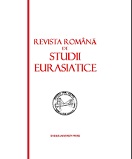TRANSITIONS TO DEMOCRACY: ARE THEY ALL THE SAME ? EASTERN EUROPE COUNTRIES vs. EGYPT
TRANSITIONS TO DEMOCRACY: ARE THEY ALL THE SAME ? EASTERN EUROPE COUNTRIES vs. EGYPT
Author(s): Mihaela IvănescuSubject(s): History
Published by: Ovidius University Press
Keywords: transition; authoritarian regime; military leadership; communism; civil society; religion; consolidated democracy.
Summary/Abstract: The most desirable objective of any transition process is democratization, in both political and economic fields, but the road to a consolidated democracy is often filled with uncertainties and unpredicted problems. That is why, in most cases, the periods of transition are characterized by a state of generalized unrest and disorder, which comes in stark contrast with the apparent order of the non-democratic regimes. There are many theoretical interpretations of the fundamental – and historic, too – process of transition from an authoritarian regime, regardless its form, to a democratic one. We list some of these interpretations regarding the cases of some Eastern European countries in order to serve us as methodological model to another case study, that of post-Mubarak Egypt. This country developed, after February 11, some particular evolutions, which are partially encountered two decades ago in Central and Eastern Europe but, also, there are some of them which are totally specific for the case of Egypt. The main research question that consisted the baseline of our analysis was: „is the transition process in the Arab countries of the Northern Africa similar to that which took place in the Eastern Europe, or are there some specific elements that make it different and, by consequence, impossible to analyse by using only the <<classical>> theories of transition and democratic consolidation”?. Our paper – our comparative - historical research – will combine two main research methods: the historical approach and the comparative method. The first one will help us understand better how the social collective mentalities may influence the political evolutions in Egypt, whereas the second one will allow us to extract the singularities of the Egyptioan transition process and to include our case study in a category of „nations in transit” that is very different from the category of some Eastern European countries like Romania, Bulgaria, Hungary, Poland, Czech Republic.
Journal: Revista Română de Studii Eurasiatice
- Issue Year: 8/2012
- Issue No: 1+2
- Page Range: 157-174
- Page Count: 18
- Language: English

